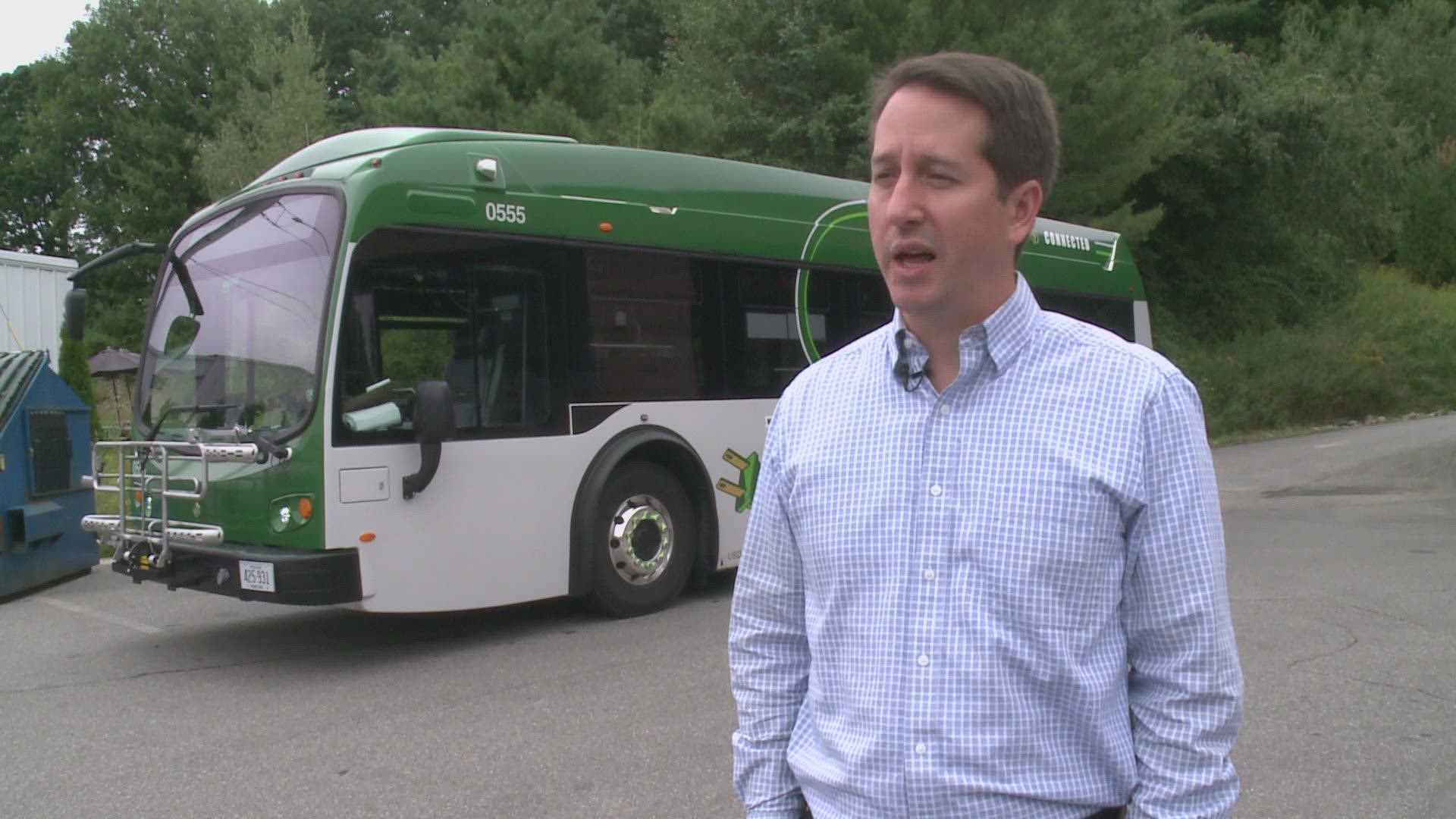BIDDEFORD, Maine — Biddeford Saco Old Orchard Beach Transit has received $2 million federal funds for the purchase of two zero-emission electric buses.
The transit system already has two electric buses on its fleet, and these new buses coming will replace two of the old diesel buses.
Chad Hied is the executive director of the transit. He said the battery on each of the the electric buses that are currently running lasts for about 200 miles per day, which basically covers driving from 8 a.m. to 2 p.m.
Funded by the President Joe Biden's Bipartisan Infrastructure Law, the federal money came through the U.S. Department of Transportation’s Low- and No-Emission Vehicle Program.
Rep. Chellie Pingree, D-Maine, says this will provide safe and reliable transportation for transit-reliant residents and reduce greenhouse gas emissions by an estimated 4.8 million pounds over the buses' 12-year life cycle.
The federal money will also go toward a new charging station that's going to be at the Saco Transportation Center.
These buses help reduce pollution, Heid said, and the goal is to swap all of the diesel buses for electric ones.
"They are incredibly quiet. Our customers are really enjoying them. They are incredibly reliable," Heid said. "There is a little bit of new understanding to operate the bus as well as to maintain the technology because it's different, so part of this award for $2 million includes funds to develop a workforce training program so that our existing workforce is as well as optional new employees understand the new technology and are able to maintain it moving forward."
The new electric buses are expected to hit the streets of that transit sector in 2024.
In asking Heid why electric buses are important, he said this.
"That's really important for a number of reasons. We want to make sure that our fleet is in a state of good repair, so that means maintaining a fleet that is contemporary and able to be reliable for our riders on an everyday basis. It's also really important to align with the state of Maine's minimal weight climate action plan, which has been invoked by the current administration, as well as aligning with the current federal administration's goal to have zero emission buses across the country by 2050," he continued.
The goal to change the fleet to exclusively electric buses is something the Greater Portland Metro is also working toward.
“With 54 percent of Maine’s greenhouse gas emissions coming from the transportation sector, electric buses are a key way to reduce pollution in our communities and transition to a clean energy economy. Now, thanks to this historic and transformational law championed by President Biden, our local transit authorities are replacing outdated diesel buses with electric buses,” Pingree said. “Electric buses are energy efficient, powered by zero-emission technology, and most importantly, safe and reliable.”
This funding is part of $1.66 billion in grants to transit agencies, territories, and states across the country to invest in bus fleets and facilities.

